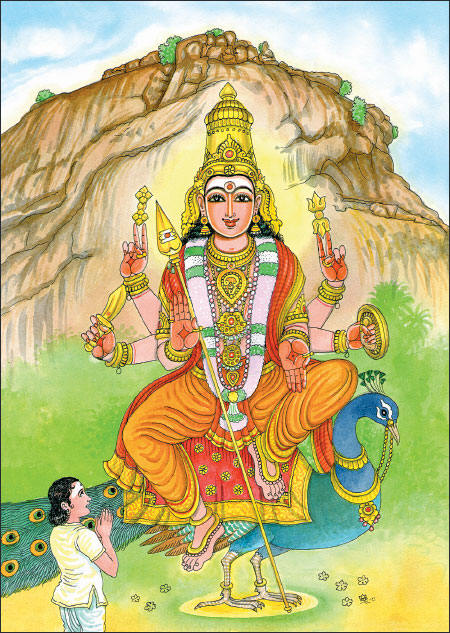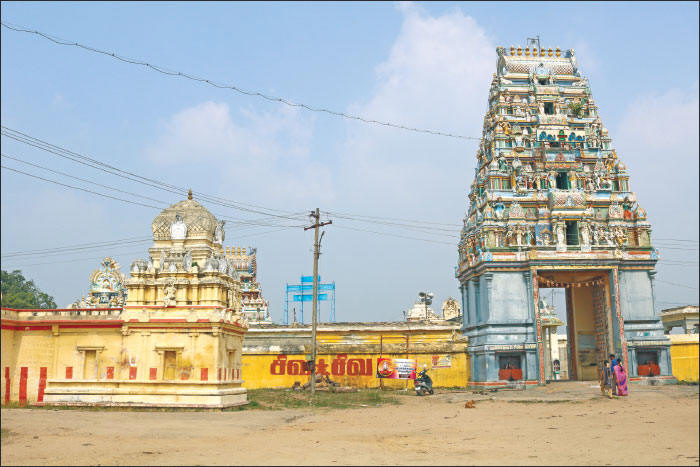திருவருள்
= Divine Grace
செல்வர் = Starets
செல்வர்கள் = Staretsy (Plural)
"staretsy" is a plural form of "starets":
http://www.memidex.com/staretsy
Starets =
spiritual leader(s) whose wisdom stems from God as obtained
from ascetic experience.
Author P.N. Parasuraman
An observant elder told his father that the youngster would one day become an ascetic. What was the feeling of the father?
The father thought to himself, “I should not send this boy to the school. He won’t be earning to support me if he becomes an ascetic. I must send him to work.” He admitted him to the school of carpentry. (What a coincidence? Jesus Christ was a carpenter.)
The boy did not protest and became an apprentice to a carpenter. He read Thēvāram on his way to work and back home. One day he walked into a pile of sand, and something hit his leg. He looked at the offending object. They were two soda bottles. He wondered how these bottles got into the sand pile. He picked them up.

Sin in one place; blame in one place. As soon as he was examining the bottles from the mud pile, he heard a sound, “There he stands, look. Catch him!” In a few seconds, a crowd gathered. The loudmouths in the crowd said, “This is him! He stole. Don’t let him go! Thrash him; take him to the police station.”
Some others said, “Little thief! Look at him! At this tender age, he is a thief.” They played their small role in this street drama. The boy did not understand what was going on. The crowd raised its collective hands.
The boy standing steady uttered, “Murugā; Murugā” An authoritative voice came: “STOP.” A policeman followed the voice on its heels.
“What is this? Does this boy look like a thief? Don’t you see a good boy? I know him very well. He is virtuous and devotional. Without an inquiry, you raised your hands.” He turned his face toward the boy.
“Brother! These people mistook you for a thief. Don’t worry!” The policeman sent him on his way. Some came to the crowd saying they caught the real thief. The hotheads who raised their hands to thrash the boy were crestfallen. The youngster said to himself in a soft voice, “Murugā, is this your divine play? He walked away reading his Thēvāram.
That youngster was the future Muktā Guhasrī Rasapathi Aṭikalār. At his tender age he displayed his mature Buddhi and reflected on Thāyumāṉavar’s words, “Whatever work you do and whatever agony you suffer, the Jīvaṉ Muktā will keep his mental silence.” He wrote the explication and commentary on many Sthala Purāṇas in a beautiful prosaic style. His writings on Vaḷḷālar poems are great. Guhasrī Rasapathi Aṭikaḷ delved deep in writing and Yoga.
Why did the virtuous Guhasrī have all these problems at a tender age?
Gods may take Avataras. Mahans are Avatara Purushas. We should not think they have immense wealth, take a bath in rose water, and eat Pāyāsam (Sweet porridge) every day. For example, in Kamba-Valmiki Ramayana, there is no mention of Rama embracing his children. Ramāvathāra was of this nature. Bhāgavatam and Nārāyanīyam do not mention that the birth parents Vāsudevar and Devaki prattled with, and caressed Kaṇṇaṉ (Krishna). Nandagopar-Yasoda and Gokula residents had that privilege. Why this? Of the greatest of all the splendorous, Sivaperuman went to work to build a bund across the river, carried bags of mud and received whippings. We all know it!
The gods came down and by their deeds showed us the pride in physical labor and the greatness of Tyāgam (self-sacrifice). The ltihāsas described these in great detail, and there is no such religious literature in the world that outshine the Itihāsas.
Besides the gods, the Avatara Purushas underwent hardship: They teach us great lessons.
Guhasrī Rasapathi Aṭikaḷ is no exception. He suffered. Let us look at it.

In Chennai Purasaivakkam in the year Supakrutham, month of Āvaṇi 12th day (Aug 27, 1902) Parthasarathy Nāyakkar, and Ciṉṉammaḷ gave birth to the Incarnate Guhasrī Rasapathi Aṭikaḷ.
Aṭikaḷ’s mother had immeasurable love and devotion to Vaḷḷālar.
She raised his son in the path of devotion and had a daughter after his son’s birth. She was admitted in Ezumbūr (Egmore) Maternity Hospital and delivered a baby girl. Both mother and the baby girl died.
Aṭikaḷ’s father had Vēdavaḷḷi as his first wife. She sustained postpartum death. Later Parthasarathy married Chinnamal. He lost her too and was grief-stricken. He had an iron foundry in Purasaivakkam and suffered a significant loss in his business.
He sold off the foundry and thinking he had no means to support the children, he kept the eldest boy and sent Aṭikaḷ and his younger sister to the children’s maternal uncle’s house in Kūvam. Parthasarathy moved to Mylappur with his oldest son.
Aṭikaḷ growing up in the maternal uncle’s household, studied in the ‘Platform School.’ His teacher appreciating his sweet disposition and tranquility had affection for him. Aṭikalār always worshipped God before he began his daily studies in the school.
A thunderbolt, lightning and torrential rains struck the tranquil life of Aṭikaḷ.
Divine Grace will grow.
Images: S. Vivekananthan.